CAREER IN STRENGTH & CONDITIONING
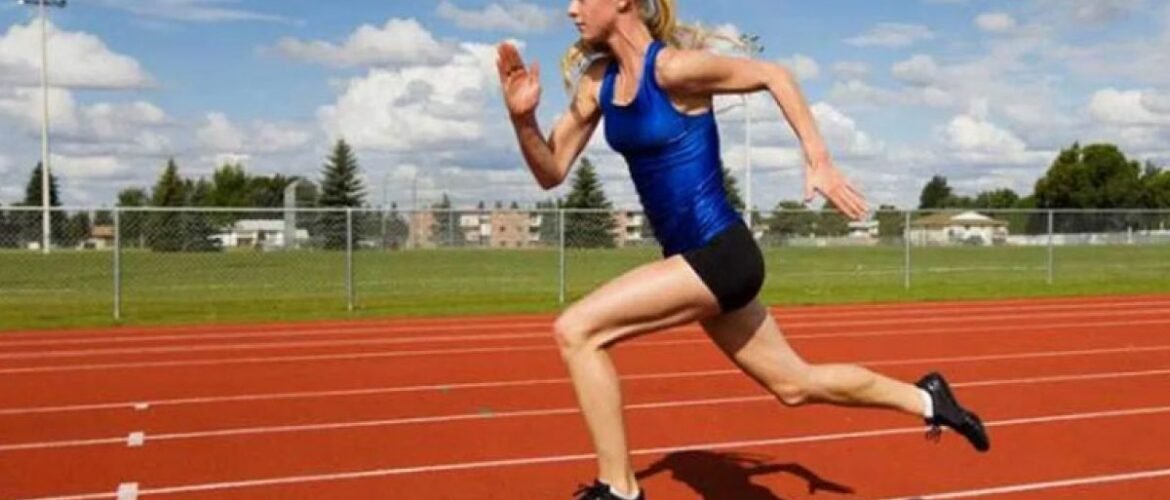

The Specialist in Strength & Conditioning (SSC) is responsible for establishing and maintaining a strength and conditioning program for all sports, with the three major goals of –
- improving athletic performance,
- reducing athletic injuries and
- teaching lifelong fitness and movement skills.
The S&C specialist is expected to use all training methodologies available to him. It is not just weight training or Olympic lifting which is great for developing foundation strength but functional training for stability and mobility, plyometrics, water fitness and conditioning, sports yoga and all other exercise formats necessary to even the minutest of the conditioning component. He or she has to work in close coordination with the sports coach and the team of sports physios, sports nutritionists and sports psychologists.
The S&C scene in India is in its infancy – and therefore holds much promise!
As in the case of sports physiotherapy, sports nutrition and sports psychology, in India, S&C has already begun to be recognized as being critical for superior physical performance. The demand built up in the last five will gain momentum in the ensuing years. This demand is from not only professional sports teams, international and national sports teams but also from those at school level. The awareness has already set in – only talent is not enough to succeed at the highest echelons – body and mind need to be conditioned according to sports and individual needs. The SSC is assured of a good, secure career.
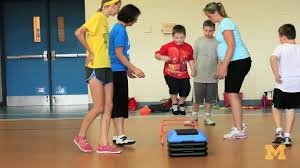
S&C has potentially a huge market at the levels of schools, colleges and universities. We have no national framework for fitness and sports for our citizens across age groups like the one that was popular in the Soviet Union of the 1960s and 1970s – the GTO (Gotov k trudu i oborone or Ready for Labour and Defence) which facilitated mastery in sport and mass participation in all areas of the sport movement. (If you ask me, personally, I believe in a system that raises national fitness levels!)
For strength exercise prescription, the type of exercise, total session volume, rest period, frequency, and intensity are determined. Sports medicine and sports nutrition are not within their ambit of qualification and work.
The GTO program covered Soviet citizens in the age groups from 6 to 60 and assessed individuals not only in sports and physical activity but in personal hygiene and academics. It is considered as one of the foundations of Soviet accomplishments in international sport. Interestingly, the West had a different set of goals in schools – example, like “getting fit”, managing body fat and so on. So, from both the Soviet and the Western idea of national fitness, the SSC ought to be able to draw inspiration and chalk out suitable strategies for running successful training programs in age groups of 6 to 18 in any organization that he or she is working in.
Pre-Qualifications
India
The SSC needs to have a certain minimum level of education and maturity. In India, S&C is a fledgling career – though, not to be identified as being same as “personal training”, surely. A person hoping to pursue a career as an SSC ought to fulfil these requirements –
- Must have passed 10 + 2 years of School Education
- Must hold –
- National / International Certification Fitness Education, or
- Sports Coaching certificate in Sport, and
- and have a minimum three years of training experience
- Must be physically fit. Physically Challenged persons can apply if they have exposure to fitness / sport.
- Must have the passion to share knowledge
- BEFORE EXAMINATION, must attend and be certified in First Aid & CPR with AED by First Aid International (UK) / equivalent.
In India, there are no S&C courses available at a degree level. Several certificate courses are available. However, our Academy has designed two certificate courses to run concurrently under the auspices of the University of Mumbai (in partnership with the BPCA’s College of Physical Education) and the Assam down town University, Guwahati. What makes these courses attractive is that fitness professionals, sports coaches and sportsmen with adequate experience and who are at least “10+2” can enrol to these courses. We hope to conver these certificate courses into year-long diploma courses after basic graduation. Visit https://www.gayofitnessacademy.com/course/certificate-course-in-strength-and-sports-conditioning-ccssc/
With Prof. Ian Jeffreys’ visits to India as Guest Faculty giving us direction, our University courses will be developed to assist our Indian and Asian athletes. We simply cannot be mindlessly copying all that happens in the West. These certificate courses will be developed into post-graduate diploma courses. Do read my blog which includes an interview with Prof Ian Jeffreys.
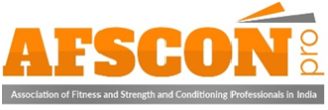
Our Academy has promoted the Association of Fitness and Strength & Conditioning Professionals in India – AFSCONpro which is a non-partisan, apolitical body for the betterment of its members. Membership is open to not only to our Academy students but to all S&C, fitness and sports professionals in India. COVID19 has forced the association to reschedule its 2020 programs. For more information, visit https://www.gayofitnessacademy.com/afsconpro/
USA
It is not surprising therefore that in the USA, the National Strength and Conditioning Association (NSCA) offers a Certified Strength and Conditioning Specialist (CSCS) qualification. A bachelor’s degree is a prerequisite for the CSCS. Degrees in “majors” that are related to exercise science – e.g. exercise physiology and exercise kinesiology – due to the competitiveness of the field are preferred from an academic and professional point of view. The US Collegiate Strength & Conditioning Coaches association (CSCCa) also offers certification exclusive to the collegiate and professional-level strength and conditioning coach – the Strength & Conditioning Coach Certified and Master Strength & Conditioning Coach (MSCC) This certification requires a bachelor’s degree and a rigorous internship in addition to passing the certification exam. The International Sports Sciences Association (ISSA) also offers an S&C course.
UK
Strength and Conditioning in the UK is generally supervised by the UK Strength and Conditioning Association (UKSCA) and the Chartered Institute for the Management of Sports and Physical Activity (CIMSPA) which is now the national register for exercise professionals in the UK. IaIn the ensuing months, REPS UK will cease to exist. Both UKSCA and CIMSPA will continue to provide regulations and standards for employers and professionals. A UKSCA membership and a bachelor’s degree in sport and exercise science are generally accepted by many professional sports clubs as prerequisites for strength and conditioning positions.

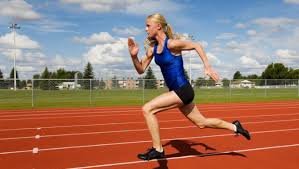
S&C is not just advanced personal training as is commonly believed. It demands a higher mastery of kinesiology and biomechanics coupled with a command of exercise sciences. Olympic lifting or strength training are just one element of S&C which today requires a holistic approach to conditioning of the body and mind.
Image Several unique features make the SSC stand apart from the others like personal trainers, sports physios, etc:
- He needs to be adept at training in the gym and outdoors on the sports field
- He needs to be familiar with the rules of the sport / game his client is training for
- He needs to work in close tandem with the sports / game coach.
- He needs to have sharp understanding about the sport-specific goals and individual-specific goals.
- Compared to the others in the “support team”, apart from the Coach, it is the S&C who has to be a good communicator and motivator.
There are some common pre-requisites to developing an S&C career:
- Empathy: He or she must learn to understand the personality, psychology and the performance goals of the client. Every client is uniquely different. Gray Cook, a leading strength and conditioning specialist, Olympic weightlifting coach and as a kettlebell instructor, emphasizes: “Don’t put fitness on top of dysfunction.” A beginner is NOT ready to start with squats – teach him the hip hinge and hip thrust movements first! The beginner does not have the trainer’s fitness and strength levels, so don’t impose loads on a dysfunctional body. We see this all the time in gyms around the globe. Men and women struggling with external weights when they should be trained with just body weights for technique. Move the muscle, not the weight!
- Patience: Avoid short-cuts! Long-term maintenance of nutrition goals is not possible through short-cut methods! Resist the temptation of adopting fad diets!
- Experience: If the nutritionist is going to counsel a marathon runner, then he or she must train to run a few kilometres weekly. How is he / she going to advise a post-workout meal without having experienced the post-workout demands of the body? From experience is born conviction.
- Knowledge: Flaunt your degree and post-grad degrees, she advises. Certificates are reasonable evidence of sound professional knowledge that has been tested through rigorous training, internship and examinations. Educate the client about your professional abilities!
- Professional edge: Sharpen your professional edge with some “horizontal” skill sets. For example, pick up a well-respected certificate or diploma in Yoga or Pilates.
- Teamwork: He should have good interpersonal skills and ability to work with others in pressure cooker situations.
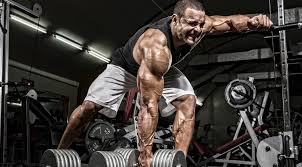
- Humility. I love what Christian Thibaudeau, is a Canadian Olympian and strength training coach from Montreal, Canada, said: “I have too much respect for every single successful coach or athlete to dismiss any technique, program or system just because it doesn’t sit well with my own personal likings and beliefs.” It is necessary to be humble and open-minded.
